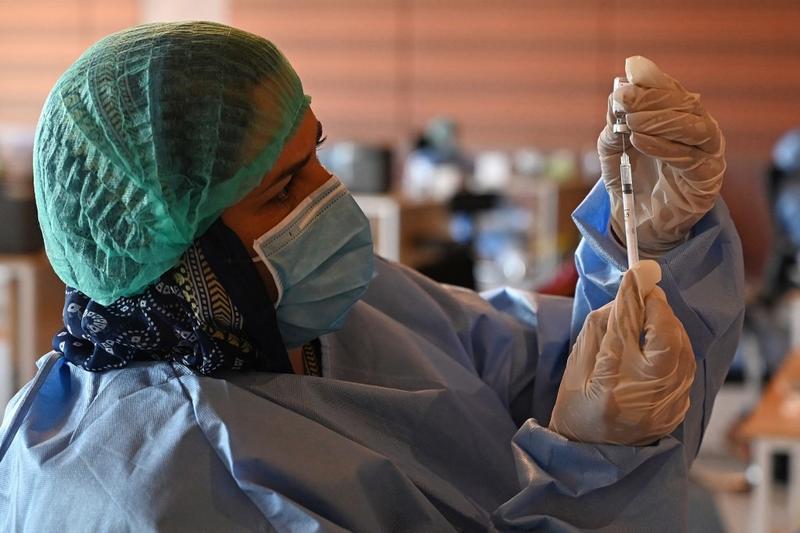 A health worker prepares a jab of CanSino Biologics' COVID-19 vaccine at a vaccination camp held in Islamabad on May 19, 2021. (AAMIR QURESHI / AFP)
A health worker prepares a jab of CanSino Biologics' COVID-19 vaccine at a vaccination camp held in Islamabad on May 19, 2021. (AAMIR QURESHI / AFP)
BEIJING - China’s CanSino Biologics (CanSinoBIO) may start as early as next month a clinical trial using Russia’s Sputnik V vaccine followed by a shot of its own COVID-19 vaccine, a senior executive said late on Thursday.
Combined dosage may help address a global shortage of the two-dose Sputnik V, which adopts a similar technique as the Chinese company’s product, Pierre Morgon, senior vice president at CanSinoBIO, told Reuters.
“[The combined use] is something that several countries have been asking for, because the Russians have had difficulties in supplying the second dose in sufficient quantities compared to the first dose,” Morgon said.
Combined dosage may help address a global shortage of the two-dose Sputnik V, which adopts a similar technique as CanSino Biologics’ product, said Pierre Morgon, senior vice president at CanSinoBIO
He expected the trial to start around August and September.
ALSO READ: Early trial shows CanSino inhaled jab triggered immune response
Morgon declined to disclose where the trial would be conducted as the information is yet to be made public, but he said it would not be in China or Russia.
Both Sputnik V and the CanSinoBIO’s shot are viral vector vaccines and use adenovirus that have been engineered to be harmless as a vector to carry the coronavirus’ genetic information into the human body.
The first dose of Sputnik V is based on adenovirus type 26, while the second dose and the CanSinoBIO’s vaccine contain adenovirus type 5.
The trial, which will study the combined doses’ safety and ability to trigger immune response in adults, has obtained local authorities’ endorsement, pending approval from ethical committee, said Morgon.
READ MORE: CanSino says no blood clots reported from its virus shot
Clinical trials combining AstraZeneca Plc/Oxford University’s COVID-19 vaccine, which also uses a chimpanzee adenovirus vector, with Sputnik V had been approved in Russia, Azerbaijan, the United Arab Emirates and Belarus.


